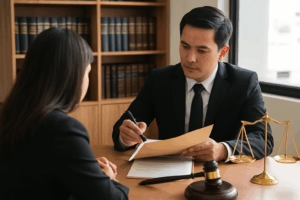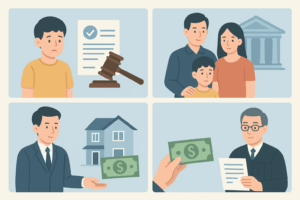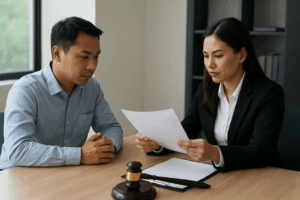Introduction
Imagine you’re in a bustling street of Bangkok, and you need to get some legal documents authenticated. Where do you turn? How do you ensure that the person you’re trusting with your sensitive documents is legitimate? Worry not; we’ve got you covered. This article will guide you through the process of finding a reliable Notary Public in Thailand.
The Significance of Notary Public
Before diving into the quest, let’s establish what a Notary Public is. In simple terms, it’s like a human seal of authenticity for your documents.
Historical Roots of Notary Public in Thailand
Interestingly, the history of Notary Public in Thailand has a touch of practical genius. The term, in Thai, can be loosely translated to ‘signature certified attorney’. It arose from the need to certify signatures on documents sent to far-off places. Essentially, a credible person from your locality would certify that you indeed signed a document. This historical practice has evolved into what we now know as Notary Public.
Understanding the Role of a Notary Public in Thailand
Responsibilities and Duties
In Thailand, a Notary Public is akin to a guardian of legal authenticity. They’re responsible for verifying identities, ensuring that documents are signed voluntarily, and making sure they are legally binding.
International Credibility
Not just within Thailand, but the certificates issued by a Notary Public have weightage internationally. So, whether it’s for a marriage, divorce, or other legal documents, they make sure your papers are recognized globally.
Step-by-Step Guide to Finding a Reliable Notary Public
Check for Legal Background
First things first, ensure that the Notary Public is actually a lawyer. This is because, in Thailand, only lawyers are authorized to serve as Notary Publics.
Verifying Membership with the Lawyers Council
Cross-verify that the lawyer is certified by the Lawyers Council of Thailand. They need to pass a specific license assessment to be allowed to provide Notary Public services.
Evaluate the Notary Public Certificate
Examine the Notary Public’s certificate. Is it genuine? Is it up-to-date? These are crucial questions to answer before proceeding.
Seek Recommendations
Talk to friends, family, or colleagues who might
have availed the services of a Notary Public. Personal recommendations can often lead to reliable professionals.
Use Online Resources
There’s a treasure trove of information online. Use websites and forums to research Notary Publics. Read reviews, check ratings, and gather as much information as you can.
Potential Pitfalls to Avoid
Inexperienced Notaries
Avoid Notary Publics who lack experience. When it comes to legal documents, experience and expertise are key.
Notary Public Without Proper Credentials
Steer clear of anyone who doesn’t have the proper credentials. It’s like giving your precious jewels to a stranger; you wouldn’t do it, would you?
Finding a reliable Notary Public in Thailand doesn’t have to be a Herculean task. Armed with the right knowledge and a dash of diligence, you can navigate the streets of Thailand and find that gem of a Notary Public to safeguard your legal documents. After all, isn’t it comforting to know that your papers have the seal of authenticity, both in Thailand and beyond?
FAQs
1. What is the primary role of a Notary Public in Thailand?
– The primary role is to authenticate and certify legal documents by verifying the identity of the signatories.
2. Can any lawyer act as a Notary Public in Thailand ?
– No, only those lawyers who have passed a specific license assessment by the Lawyers Council of Thailand can act as a Notary Public.
3. Are documents notarized in Thailand valid internationally?
– Yes, documents notarized by a certified Notary Public in Thailand are recognized and valid internationally.
4. How can I verify if a Notary Public is legitimate?
– You can verify their legal background, check their membership with the Lawyers Council, and evaluate their Notary Public Certificate.
5. Can a non-Thai speaker avail of the services of a Notary Public in Thailand?
– Yes, many Notary Publics in Thailand are proficient in English and can help non-Thai speakers with legal document authentication.
Contact : Siam Center Law Group by calling +66(0) 2 648 5041, +66(0) 2 648 5042





